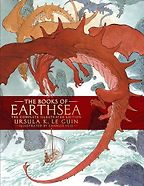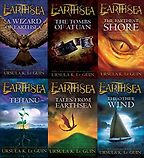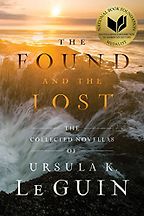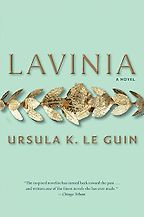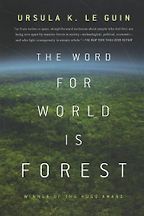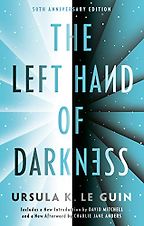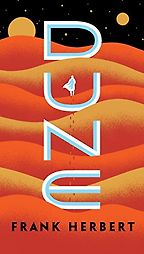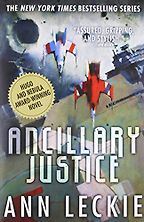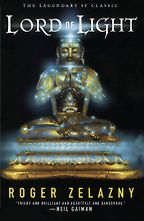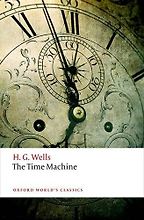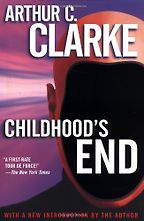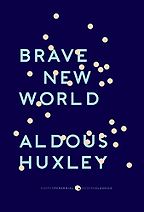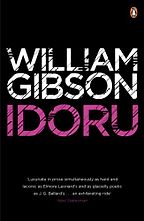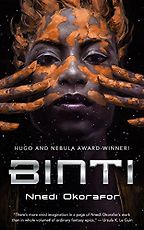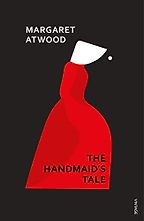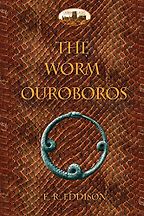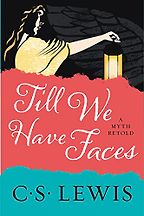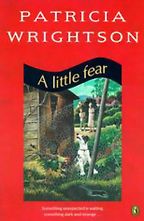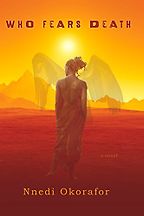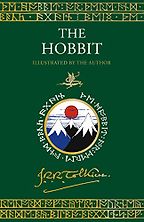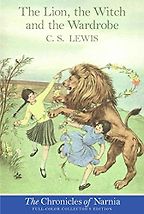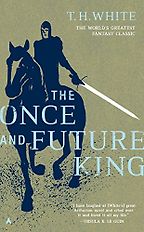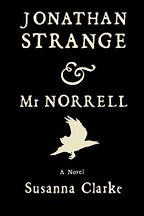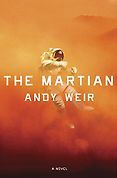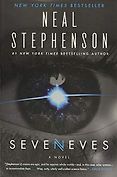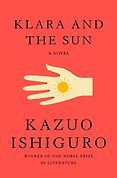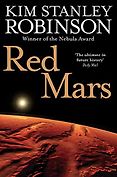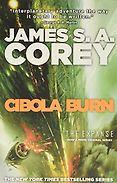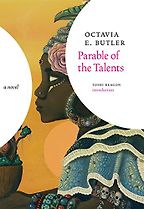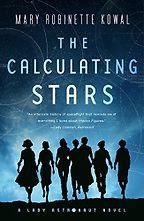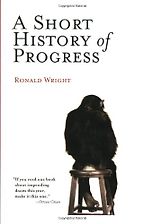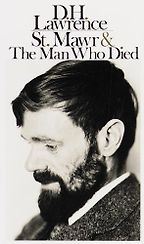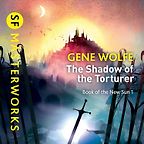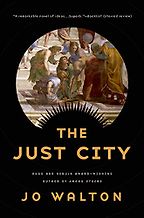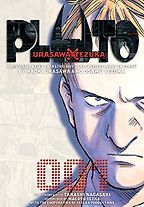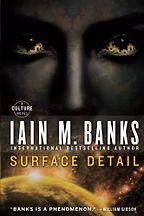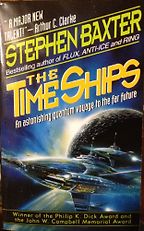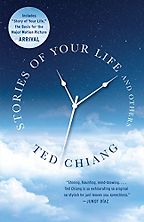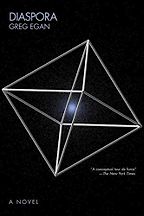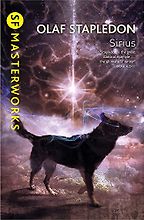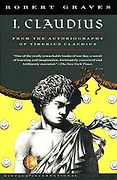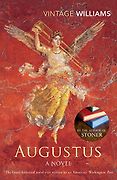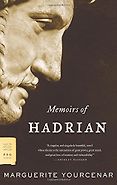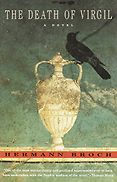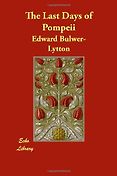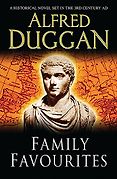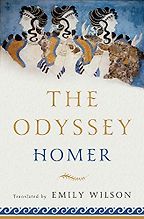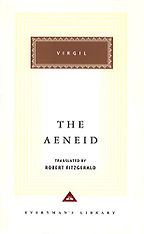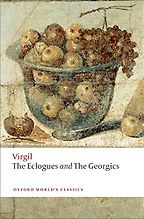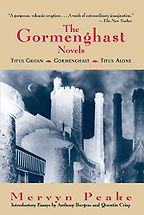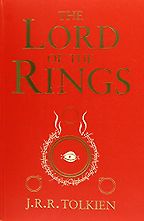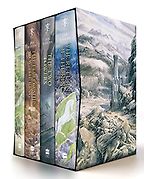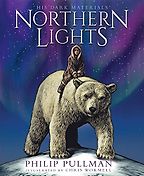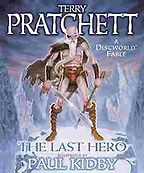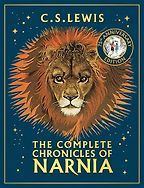Books by Ursula Le Guin
Ursula Le Guin was one of the greatest science fiction writers of the 20th century. Of her books, the most frequently recommended on Five Books are A Wizard of Earthsea and The Left Hand of Darkness.
Below, all the times Ursula Le Guin’s books have been recommended on Five Books.
The Books of Earthsea: The Complete Illustrated Edition
by Ursula Le Guin and illustrated by Charles Vess
“It’s about a multi-generational space journey from Earth. But though 200 years, for a multi-generational ship, is not that long, if you think politically that’s a very long time. They arrive like a different species of human to the humans that could live on this planet. I think that deep materiality of her vision brings us back down to Earth, if you will, from these fantasies about colonising Mars.” Read more...
Sherryl Vint, Literary Scholar
“With the case of Lavinia, she does careful research about the lives of people in what we now call Italy, when the events of the Aeneid were meant to have taken place. They have different gods, different ways of thinking about violence, different ways of thinking about gender. It’s an alien culture, if you will. It’s a book that really shows the power of stories. And, ultimately, that’s what Le Guin has explored throughout her career—the power of stories in shaping cultural values and political societies.” Read more...
Sherryl Vint, Literary Scholar
This Locus Award-winning novel by American author Ursula K. Le Guin is told from the perspective of Lavinia, the princess with the flaming hair. Though she hardly says a word in Virgil’s Aeneid, she is beautifully reanimated in Le Guin’s modern retelling. Her domineering mother Amata favours King Turnus of Rutulia as Lavinia’s match. But Lavinia has other ideas—she dreams of the famous Aeneas whom she has been told of by the ghost of Virgil, called here simply ‘the poet’. Lavinia’s fate is decided: she cannot concede to wedding Turnus, but with that comes the knowledge that this decision will result in war—Aeneas has her heart.
From our article Books like The Song of Achilles
“What’s really neat in The Dispossessed is that we’re comparing two worlds that are right next to each other, because we have a world and then a moon on which people are also living. The moon has had an anarchist, collectivist revolution, and is living by a set of very strict, collaborative, cooperative philosophical principles, which leads to a life of equality, austerity, hard work, and many other elements…Then the neighbour world is beautiful, and full of rich and gorgeous things…but also full of decadence and corruption and inequality – because when everybody who’s an idealist of that type leaves your planet for the moon, your planet gets philosophically pushed in the other direction. The book holds these two worlds up next to each other.” Read more...
Ada Palmer, Novelist
“This is part of Le Guin’s Hainish Cycle…It follows a human logging company on a small planet that’s covered in ocean and a few islands covered in forest. They’ve cut down all the trees on Earth, so they are excited to come and grab at these resources and send them home to make a lot of money. The conflict is that there are people living on the planet already in the forests. The logging companies immediately start exploiting them for labor and various other abuses. These very peaceful people who have lived sustainably with their forests, one of them snaps and decides to fight back and eventually, there’s a violent overthrow of the logging company and they get shoved back off the planet. It’s not really a happy ending because as the native people discuss amongst themselves at the end, now they’ve accepted violence into their society, which they haven’t before. So again, this is a mirror. It’s a look at how colonizers and especially resource companies—like mining and logging companies—abuse both the land and the people living on the land, and shows us how harmful that attitude could be in space.” Read more...
The Best Sci Fi Books on Space Settlement
Erika Nesvold, Physicist
“Le Guin was writing probably not intentionally Jungian structures but she has a creature or an entity called the Shadow, so it’s pretty hard to escape Jung on that. And then there’s a lot of Daoism, the kind of sense of the balance forces of the universe. What does a wizard do in that kind of a world? And again, especially with death, which is the ultimate fear that keeps coming back throughout the Earthsea books. The formulation of how you deal with it changes from book to book. I think one of the great things about that series is that she didn’t erase anything she’d done before, but she kept rethinking and complicating the relationships.” Read more...
The best books on Fantasy’s Many Uses
Brian Attebery, Literary Scholar
Harry Potter was not the first book to feature a wizard, and it’s worth reading some of the older books that (presumably) inspired JK Rowling. Ursula Le Guin’s A Wizard of Earthsea (1968) is a perennial favourite on Five Books. In the book, a boy who discovers he has magical powers ends up at a wizarding school and fighting evil. Despite the similarities, A Wizard of Earthsea is quite a different book from Harry Potter. The school (Roke) does not play the central role Hogwarts does and the writing has a bit more of an epic, somewhat formal feel.
One other book to mention in terms of the inspiration behind Harry Potter: if you haven’t read it yet, you’ll find quite a bit that’s familiar from Harry Potter in The Lord of the Rings. This is a book I devoured as a 13-year-old and enjoyed rereading recently for Five Books. My kids found it a bit harder going, though we did listen to the first two volumes as audiobooks in the car.
From our article Books like Harry Potter
“In one of the introductions that it has been published with, she specifically describes it as a thought experiment. It’s a simple idea: what if there was no gender? What if people were neutral in their gender, and only took on gender characteristics for sexual reproduction? If anybody could take on either masculine or feminine characteristics, and if throughout your lifetime you might be both, then what would it mean? We have a world thoroughly saturated with gender difference and patriarchal worldviews, and Le Guin makes us realize how true this is by the contrast.” Read more...
Sherryl Vint, Literary Scholar
The Left Hand of Darkness is probably Ursula le Guin‘s most famous book. Like Dune, it allows us to explore a complex alien culture through the eyes of a visitor; in this case, the diplomat Genly Ai who has arrived on the planet of Gethen as part of a mission to persuade its inhabitants to join the Ekumen, a loose confederation of planets. Gethen, like Dune‘s Arrakis, has an extreme climate; at one stage, Ai treks with a Gethen native across an ice sheet for 80 days, almost losing his life in the process. And like Dune, we are introduced to an alien religion with prophetic elements. The Left Hand of Darkness is best known as a study of gender—the residents of Gethen take on characteristics of both sexes, but only at certain times, and this has profound impacts on its culture and social hierarchies. Fascinating and thought-provoking.
From our article Books like Dune
Interviews where books by Ursula Le Guin were recommended
The Best Ursula Le Guin Books, recommended by Sherryl Vint
Ursula Le Guin’s most groundbreaking books are considered landmark texts in speculative fiction, exploring themes of colonisation, gender, nationalism and environmentalism through allegorical means. Here, the science fiction scholar Sherryl Vint selects five of the best books by Ursula Le Guin and examines her legacy as one of the great American writers.
The Best Sci Fi Books for Beginners, recommended by Nicholas Whyte
Interested in science fiction, but not sure where to begin? Sceptical of spaceships, but never really given them a chance? We asked Nicholas Whyte, administrator of the World Science Fiction Society’s renowned annual Hugo Awards, to recommend five of the best sci fi books that should appeal to readers new to the genre
Science Fiction Classics, recommended by Adam Roberts
The best sci-fi explores humanity’s anxieties and concerns and is, in some sense, about the future—but it doesn’t try to predict what’s to come. Literature professor and sci-fi writer Adam Roberts, author of The History of Science Fiction, recommends five classics of the genre.
The best books on Alternative Futures, recommended by Catherine Mayer
Catherine Mayer—author, journalist and president of the Women’s Equality Party—talks to Five Books about her optimism for a more equal future for society by way of her favourite science fiction visionaries and their work.
The best books on Fantasy’s Many Uses, recommended by Brian Attebery
Visionary storytelling, or fantasy, is part of our cultural DNA. Far from being simply fantastical or facile, we can use the fantasy realm as a testing ground for important ideas, argues Brian Attebery, a leading scholar of the genre. He talks us through five key works that demonstrate fantasy’s many uses, from 1922 through 2010.
The best books on Fantasy, recommended by Lev Grossman
We’re living through a golden age for fantasy, says fantasy novelist and book critic Lev Grossman, author of The Magicians and The Bright Sword. He tells us what makes for a good fantasy novel, and who’s staking out the future not just of fantasy but of fiction as a whole.
Magical Stories for Kids, recommended by Cressida Cowell
From wizards to alchemy and fairies to folklore, Cressida Cowell reveals the magical stories that were most important to her as a child (and which she now delights in sharing with her own children), and her own inspirations for writing about magic and magical worlds today.
Science Fiction Recommended by Scientists
“The best science fiction is heavy on science and light on fiction,” Professor Chris Mason told us in his interview on science fiction and space travel. A geneticist and computational biologist at Cornell, he is just one of several scientists who have recommended the best sci-fi books on our site. Below, we’ve collected all our sci-fi books recommended by scientists—good choices for readers who love their fiction scientific.
The Best Sci Fi Books on Space Settlement, recommended by Erika Nesvold
We look to the stars and imagine a new home for humanity, an escape from the troubles that plague us here on Earth, but as astrophysicist Erika Nesvold points out, many of our problems will join us on our voyage. Here, she selects five science fiction books that illuminate the challenges and possible conflicts we’ll face if we head for this new frontier.
The best books on Uncivilisation, recommended by Paul Kingsnorth
Paul Kingsnorth, co-founder of the Dark Mountain project, urges the need for uncivilisation: the process of getting beyond our human assumptions, such as the myth of unfailing linear progress. It is about looking at humanity in the wider context of the whole planet, and the imminent ecological crisis.
The Best Sci-Fi Book Series, recommended by Ada Palmer
A series gives a sci fi writer time to develop powerfully layered worlds, says award-winning author and historian Ada Palmer. She talks us through five series that make the most of this complexity, and envision worlds ranging from lunar anarchist settlements to a real-life Plato’s Republic.
The Best Science Fiction Worlds, selected by Tom Huddleston
For many readers of science fiction, world building is the most important feature of their favourite books. Tom Huddleston, author of The Worlds of Dune, explains how the best fictional worlds are original and immersive—and, above all, mind-expanding. Here he introduces us to his top five sci fi worlds, and to the extraordinary thinkers who created them.
Science Fiction and Philosophy, recommended by Eric Schwitzgebel
Serious philosophy need not take the form of a journal article or monograph, argues the philosopher and U.C. Riverside professor Eric Schwitzgebel, as he selects five science fiction books that succeed both as novels and provocative thought experiments that push us to consider deep philosophical questions from every angle.
Classic Historical Fiction Set in Ancient Rome
Ever since the ruins of an ancient civilization started to be discovered around Italy, ancient Rome has captured the imagination and inspired writers. Here we’ve collected together all the novels about ancient Rome and its empire that have been recommended on Five Books, from an 18th-century bestseller to the last novel by one of the great fantasy authors of our time.
The best books on Virgil, recommended by Sarah Ruden
Virgil is one of the most influential poets in the history of Western literature. Here, another poet, Sarah Ruden, talks about the challenges of translating the Aeneid and why, although we know little about Virgil as a man, his great poem’s take on the violence and power struggles it depicts is deeply ambivalent.
The Best Epic Fantasy Novels, recommended by Christopher Paolini
Epic fantasies offer rich worlds and stories to get lost inside. Multi-million bestseller Christopher Paolini recommends five key examples of the genre, each offering something different – their own guiding philosophy, their own delight in language, and their own ‘wonkiness’ that makes them memorable and meaningful.
-

1
The Books of Earthsea: The Complete Illustrated Edition
by Ursula Le Guin and illustrated by Charles Vess -

2
The Hobbit & The Lord of the Rings Boxed Set: Illustrated Edition
by JRR Tolkien and illustrated by Alan Lee -

3
His Dark Materials I: Northern Lights (full-colour illustrated edition)
by Philip Pullman and illustrated by Chris Wormell -

4
The Last Hero
by Terry Pratchett and illustrated by Paul Kidby -

5
The Complete Chronicles of Narnia
by C.S. Lewis and illustrated by Pauline Baynes
The Most Beautifully Illustrated Fantasy Novels, recommended by Sylvia Bishop
The Most Beautifully Illustrated Fantasy Novels, recommended by Sylvia Bishop
Fantasy classics often have a myth-like quality that lends itself to beautiful, carefully crafted editions, explains our fantasy editor Sylvia Bishop. She introduces five key examples – from hand-produced wood-engravings to the re-colouring of a lifetime’s work, these books are labours of love.
